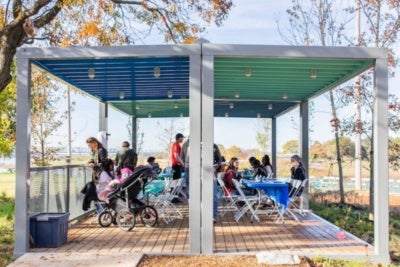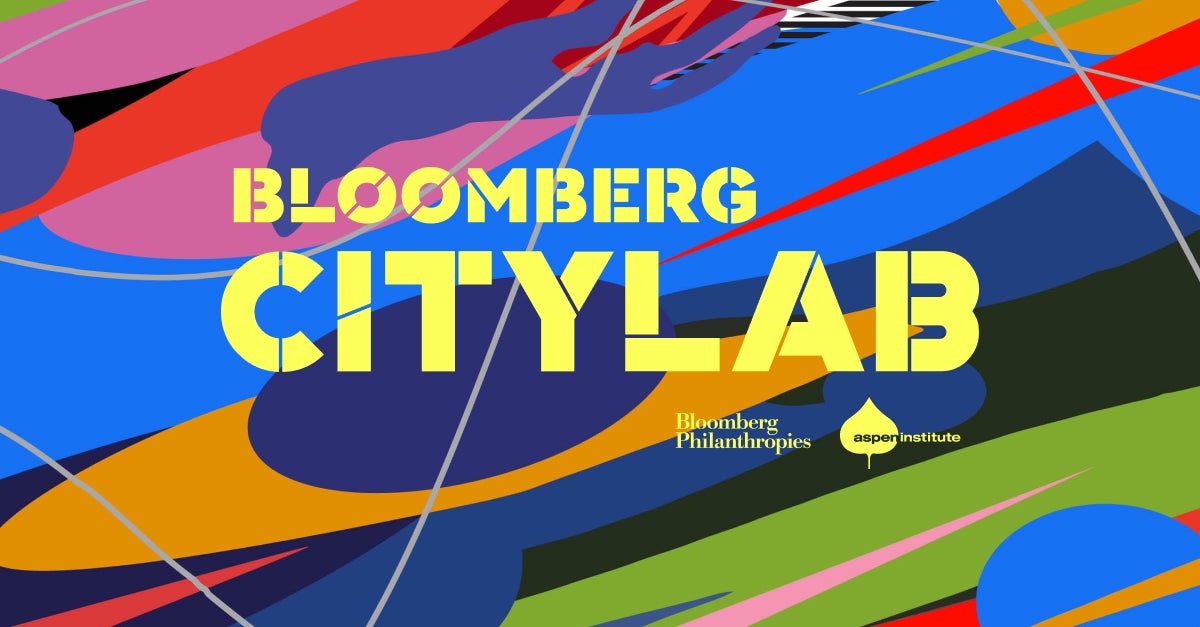What we’re working on & talking about:
The Aspen Institute Center for Urban Innovation is ramping up our research on how cities are (or are not) using procurement to increase the pipeline of smart cities/urban tech/civic tech companies led by women and people of color. How can city governments take what they’ve learned about opening up procurement opportunities in traditional industries and apply it to the fast-growing urban tech world? Or do totally different rules apply to tech? This is an especially interesting topic to us because the experience moving through the city is often different for different bodies, for women versus men and for people of color versus whites. People making the technology that pervades and shapes our public spaces and public services should reflect these different experiences.
This recent blog post summarizes some of the findings from the initial Reimagining the Civic Commons pilots in Akron, Chicago, Detroit, Memphis, and Philadelphia, plus additional insights from Tulsa and Washington, DC. The people running the pilots took resident expertise seriously and also realized that failure is an essential part of the innovation process. We look forward to seeing how these projects develop.

Memphis’ River Garden. Photo credit: Memphis River Parks Partnership
I’m excited to be part of three discussions during SXSW: one on mobility and equity broadly on March 9, one on the future of mobility on March 10, and another focusing on dockless transportation and how it has played out in DC on March 12.
Finally, our friends in Aspen’s Citizenship & American Identity Program are co-hosting what looks to be an amazing discussion between newcomers and longtime residents of Detroit, as part of their Better Arguments Project. If you’ll be in Detroit March 21, check it out.
What we’re thinking about:
We continue to work on what the increasingly rapid introduction of new technologies in cities means for city governments and city residents. Over and over again, we find that technology is forcing governments and residents to grapple with hard, human questions around trust.
For example, late last year, working with the Mozilla Foundation, we convened about 20 experts from civil rights organizations, nonprofits that support and train government employees in the use of technology and open data policies, academia, and organizations that help governments solve procurement, regulatory, and innovation problems. We asked them to evaluate whether city governments could benefit from something like a Trustable Technology Mark for publicly deployed IoT devices. A summary of the discussion is here — we hope you’ll read it.
The civil rights advocates in the room were quick to insist that when we talk about trust and technology, we have to ask: technology that is trustable by and for whom? Residents, especially in marginalized, surveillance-heavy communities, do not trust that the local government understands or values their needs and their privacy or will do the right thing in their neighborhoods. Advocates noted that, in the case of police body cameras in some communities, the local government and the technology vendors are both deemed threats.
Given this fractured relationship, advocates, experts, and members of marginalized communities have to help define the good, appropriate, ethical, and safe use of IoT technology. Community leaders also need oversight ability to make sure governments comply with the standards and to enforce rights or promises against governments and companies.
This example underscores how the question of trust, particularly in marginalized communities, is delicate and complicated, and goes far beyond whatever goals can be achieved by purchasing the right kinds of technology tools. Many participants felt that “trust” is simply too loaded a term to use in this context. They pressed us to find a more suitable word, that would clarify a reasonable scale and scope for the certification we imagined, and that would differentiate between functional values (“Does it work?”) and elevated values (“Is it ethical?”).
These deeper questions will not be resolved in time for cities to make important procurement or piloting decisions related to IoT devices in the immediate term — if ever. Cities and advocates may need to work at two levels: one, an immediate, admittedly provisional effort to block some of the worst effects and set a minimum standard for public IoT devices; and two, an ongoing conversation about what tech should be that raises the minimum standard and continually engages the community in defining the possibilities and limits of a city’s connected digital infrastructure.
This discussion challenged some of our complacency about local government, and reinforced our bedrock view that people deserve more than smart cities. We deserve cities that promote human flourishing and digital infrastructure that enhances the experiences and opportunities that city life affords. That’s the standard that governments, working in concert with communities, should support and ask technologists to deliver.
Other excellent recent pieces related to technology, regulation, and smart cities include: The Final Report of the Emerging Technology Working Group of the City and County of San Francisco (don’t let the stodgy title deter you — it’s very lucid and very smart); this blog post by Eddie Copeland of Nesta about the limits of ethical codes for AI and the need to train and trust public servants; this white paper and playbook on how residents can define for themselves what a “smart city” is, from our friends at Civic Smart City; and this sharp critique of the smart (and open and green) city paradigm by Ray Boyle of the UNDP Istanbul Regional Hub. There is no shortage of superb ideas — the stumbling block is implementation. How do we solve for that on a reasonable (i.e. much faster than typical city processes) timescale?
If you can answer that question or have thoughts on smart cities, procurement, or the dockless future, we’d love to hear from you!
All best,
Jennifer
Interesting in receiving the Center for Urban Innovation’s monthly newsletter? Subscribe here.
Past newsletters can be viewed here.

